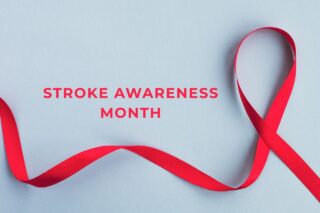
A new study of 5,100 men and women and conducted by researchers at the University of Illinois is giving patients with heart disease risk factors a big reason to smile: According to the study, people who have the most optimistic, upbeat outlook on life also have the lowest levels of heart disease. In fact, the study found those who were most optimistic were twice as likely to be in “ideal cardiovascular health” compared to those who were pessimistic.
Conducted over a period of 11 years, the study used self-reported surveys to evaluate study participants’ levels of happiness, satisfaction ad optimism. Heart health was based on measurements of cholesterol, blood pressure, weight, blood glucose, diet, physical activity and whether or not the participants were smokers.
After evaluating and comparing data among the subjects, who ranged in age from 45 to 84, the researchers discovered the strong link between optimistic outlook and better heart health. Specifically, those with rosier outlooks had lower levels of cholesterol and blood sugar, were more physically active, smoked less and had healthier body mass index measurements.
Funded by the National Heart, Lung, and Blood Institute, the study was conducted by researchers at multiple U.S. universities and supports earlier evidence, including two studies from Harvard conducted in 2011 and 2012, that have linked psychological well-being and “satisfaction with life” with lower levels of both coronary heart disease and stroke.
Although it may be difficult to find the direct physiological link between optimism and heart health, there’s a good chance it has at least something to do with a reduction in stress that comes from being happy and satisfied with life. Multiple studies have shown a link between stress and the production of specific inflammatory biomarkers which, in turn, have been linked with heart disease. By extrapolation, having a more positive outlook could very well reduce these biomarkers, thereby reducing the risk of cardiovascular disease. Likewise, chronic anger or stress can cause unhealthy fluctuations in the heart’s electrical conductivity and even promote atherosclerosis, or “hardening” of the arteries.
But whether or not research currently exists that directly links a happy outlook with better heart health, one thing is clear: Based on self-reported data and clinical data, adopting a more positive attitude is a relatively simple step that can help improve your health and make life more enjoyable, no matter what problems may come your way.
Dr. Mathew is an Electrophysiologist (EP Doctor) serving Florida’s Sun Coast, with practices in Sarasota & Venice. To schedule your consultation, call our office today.



